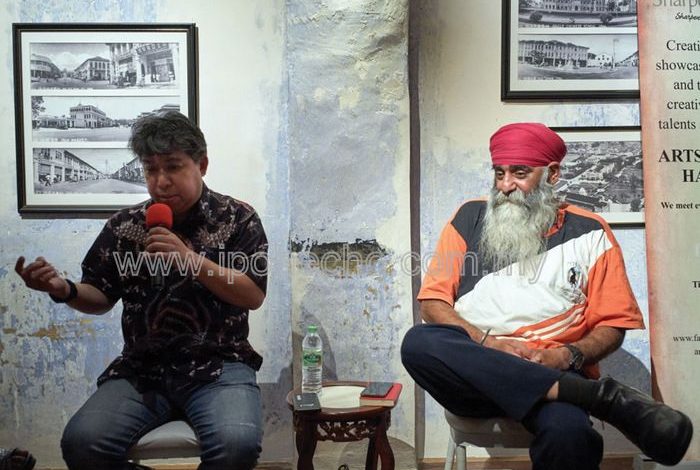The Newsroom Has Changed


By Chris Teh
The July instalment of Sharpened Word saw two notable journalists namely, Jahabar Sadiq and Jaspal Singh, on the panel. The monthly session was held on Saturday, July 27 at 22 Hale Street.
The discussion centred on the next generation newsroom and the relevance of news reporting in view of the popularity and spread of online media.
Jahabar, the editor of an online news portal, The Malaysian Insight, insisted that his smartphone is his newsroom.
“I can do everything on my smartphone, from editing on-the-go to going live on social media,” he remarked.
The advent of social media, said Jabahar, had allowed newsrooms to post articles on their websites and share them on Facebook, Instagram and Twitter. Given that social media users are just a few taps away on their phones from reading online news articles, loyalty to print media has started to diminish.
“With the popularity of online media, print media is on the way out. The older generation is used to buying a physical newspaper, but the younger ones are not inclined to do so,” he said. “That’s the reality of life. The younger generation is more visual. They prefer to watch videos or anything that moves than having to read lengthy articles with still pictures.”
Jahabar plans on starting “The Emoji Insider”, a news portal using only emojis with no words involved to report news in the future. He believed that good story-telling survives any media.
“Anyone who writes and observes well can also write effective scripts for podcasting or television. Their eyes and fingers might be occupied but their ears are always free,” he explained. “Journalism today does not only entail the traditional writing and still pictures in a news article but it also involves anything that is electronic — radio, podcasts and videos, all of these in a wee smartphone.”
Jahabar added, “In the future, ethical writing will be a very important skill in journalism. Precise words for precise actions are what should be practised by journalists. My generation is most probably the last generation of journalists that prefer a second pair of eyes to scan through any written piece of articles.”
Jaspal, a journalist with over 30 years’ experience, remarked that the newsroom today is not progressing but in a survival mode.
“They’re practically producing the same articles, differing only in angles and words,” he said, citing prohibitive media laws as a reason why they are “playing it safe.”
“Thankfully, no reporters were arrested as of yet since May 10, 2018,” Jaspal enjoined, referring to the Pakatan Harapan coalition’s victory in the 14th General Election last year. “The fact that newsrooms went into social media to share their online articles is not progress.”
He feared that news reporting would become irrelevant in the future if journalists do not step up their writing skills to keep up with competition.
“The newsroom operation has not changed much, which is why they’re struggling these days. The speed of the news cycle, that journalists have to keep up with, has increased throughout the years,” he mentioned. “Technology has influenced the change. Reporters are much busier today compared to the more relaxed newsroom in the 1980s. They now have to write for both print and online media.”
Every media and newsroom is facing the challenge of keeping up with the rapid change in technology.
“It was much easier back then. People only needed to buy a newspaper to catch up with happenings when the internet was not a thing yet,” he explained.
Jaspal lamented that reporters today are not properly trained to obtain facts and information, resulting in “churnalism”, writing elements out of context of a certain report.
“For me, the idea of journalism that can impact the society will only be possible if reporters and journalists were to pick up any form of activism,” he said. “Be involved in a cause. It’s the only way to write truly meaningful articles.”
For more information, log on to www.facebook.com/sharpenedword.kinta.


